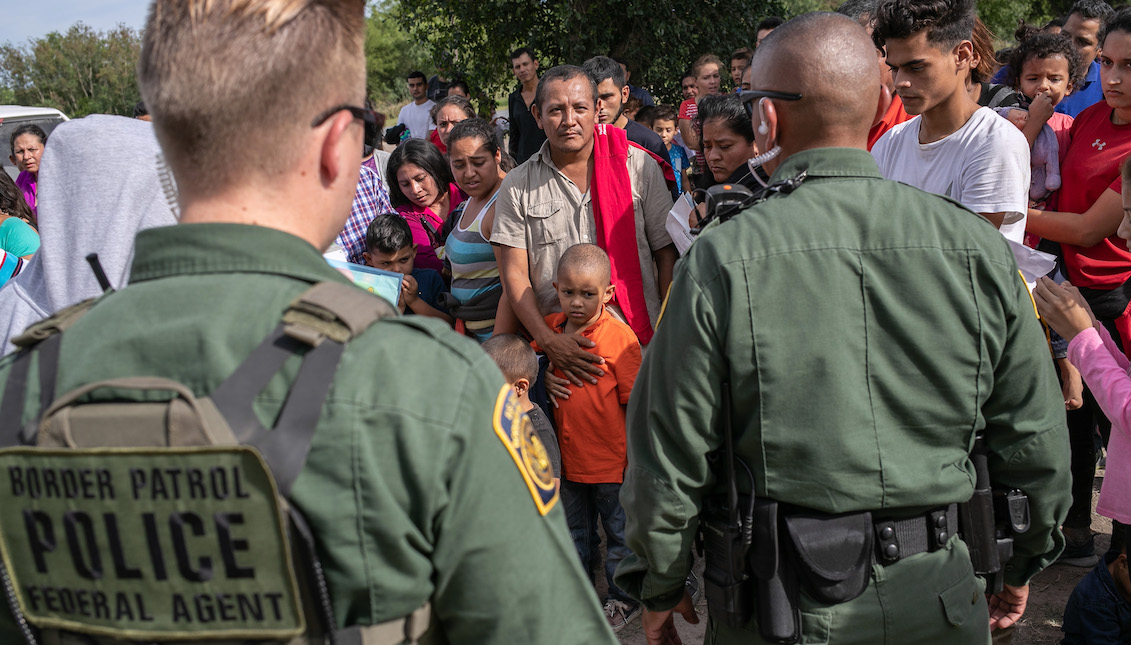
The 5 blows against immigration that Trump orchestrated in a week
While the country was distracted with the national political battle, the Trump Administration dramatically increased its aggression against the immigrant…
A revolution in Puerto Rico, riots in Hawaii, and the hearing of special counsel Robert Mueller, kept Americans entertained these past few days, giving the Donald Trump-led government a perfect smokescreen.
As it is now customary, the administration has been setting the tone on media transmissions and the focus of the attention of its citizens, in order to increase repression and attack the immigrant community.
These are the five most aggressive measures that the government has implemented in recent days:
Following the implementation of the zero-tolerance policy by the government, thousands of undocumented children were separated from their parents and prosecuted as “unaccompanied immigrants” since 2017.
Although a court order forced the government to begin family reunification processes and to seek support networks - family or sponsors - for the thousands of children detained, government agencies have not been able to undo the disaster.
In an exclusive CBS News interview with the director of the Office of Refugee Relocation (ORR), Jonathan Hayes, the country learned that thousands of those detained children could remain in custody "for years."
"Unfortunately, I have well over 4,000 of those children in my care at this time at the Office of Refugee Resettlement," the director said. "So conceivably someone could come into our care at 15 years old and not have an identifiable sponsor in the United States and remain with us for a few years."
The Border Patrol arrested Francisco Erwin Galicia, an 18-year-old American citizen born in Dallas, at a checkpoint in southern Texas while he was traveling for the university's soccer team tryouts.
When they ask him for documentation, Galicia handed everything, from his social security card to his birth certificate.
The officers arrested him on the grounds of suspicion of fraudulent documentation and held him in a detention center for almost a month.
According to the Washington Post, on April 2018, the Immigration and Customs Agency “released more than 1,480 people” arrested for suspected fraudulent documentation.
Starting this week, the Department of Homeland Security will be able to expeditiously deport certain immigrants without granting them the right to due process, according to NPR.
One of the strategies is the extension of regulations within the framework of deportation and to allow the expulsion of immigrants “who cannot prove that they have been continuously in the country for more than two years or more.”
According to the Department's notice, "the effect of that change will be to enhance national security and public safety - while reducing government costs - by facilitating prompt immigration determinations."
The Immigration and Customs Agency has implemented the DNA testing mechanism for undocumented immigrants, in order to determine if they belong to the same family unit.
RELATED CONTENT
According to the Agency’s statement on Monday, the result of the test is obtained in 90 minutes and allows to determine if the Administration's allegations about the use of minors to enter the country are true or not.
"Out of the 102 family DNA tests administered last week, 85 were found to have a familial connection," ICE said. "Seventeen came out negative, and 16 of those were referred for prosecution," CNN reported.
Finally, the government has decided to lash out food aid to low-income people, proposing to "close the automatic eligibility gap" of the Supplemental Nutrition Assistance Program (SNAP) of the Department of Agriculture.
According to the Department's press release, the strategy is to eliminate the so-called broad-based categorical eligibility (BBCE) that allows people to enroll in the program and receive food stamps even when they receive other benefits from the state.
"The proposed rule would fix a loophole that has expanded SNAP recipients in some states to include people who receive assistance when they clearly don’t need it,” reads the document.
This would affect around 3.1 million people, many of whom belong to the immigrant community.
Although undocumented people do not have access to these types of programs, in 2018 Mother Jones reported that many immigrant families with legal status in the country “were abandoning the food stamp program” for fear that it would affect their legal status.
This is one of the most important aggravating factors in the health and quality of life of communities that the government considers “second-class.”
“A quarter of children in the United States have at least one immigrant parent,” the media added. “Nearly 25 percent of US-born kids of new immigrant mothers are food insecure, compared to around 10 percent of those whose moms are American citizens.”










LEAVE A COMMENT: